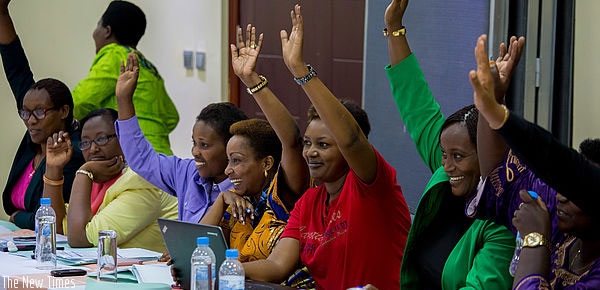Candidates should guarantee our rights, say women leaders
Women need to vote a presidential candidate who will guarantee their rights, women leaders have said.

Rwandan women elect their leaders. File.
